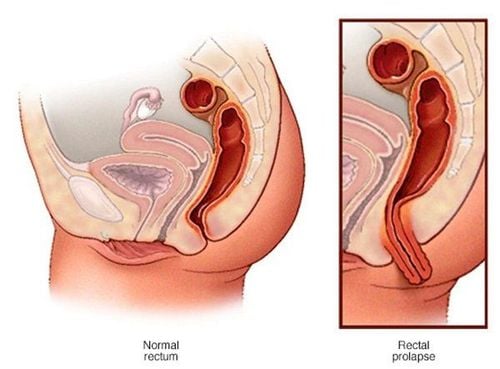This is an automatically translated article.
Pelvic floor dysfunction, although research shows that it is not life-threatening, can cause adverse effects that directly affect the daily life of the patient. For early detection and timely treatment, patients must be aware of the common symptoms of pelvic floor dysfunction.
1. What is the pelvic floor?
The pelvic floor is formed by interlocking fascia and muscles and is often likened to a hammock. These fascia and muscles are firmly attached to the abdominal wall and pubic bone in front, the pelvis on the sides, and the lumbar spine to the sacrum in the back.
The pelvic floor includes many nervous and vascular systems, but is considered as a whole of 3 main systems: the genitourinary system (uterus and vagina), the lower urinary system (bladder and urethra), and the last. along with the lower digestive system (rectum and anus).
The pelvic floor has a role to help keep these organs in their correct position, not to sag, especially during vigorous exercise or running.
Besides, the pelvic floor also has the function to help open and close and control the activities of the vagina, urinary openings, anus more autonomously.
2. What is pelvic floor dysfunction?
Pelvic floor dysfunction is a condition when the pelvic floor muscles and ligaments age and are no longer able to hold the pelvic organs in their correct positions. Pelvic floor dysfunction can be caused by age or pregnancy effects in a woman.
According to statistics, one third of postpartum women suffer from urinary incontinence, of which 50% are women over 40 years old. In addition, about 40% of women aged 50 years and older have pelvic organ prolapse, specifically 1 in 5 people will have more than 2 organs (bladder prolapse, uterine prolapse, rectal prolapse).

Bệnh rối loạn chức năng sàn chậu chủ yếu ở phụ nữ ngoài 40 tuổi
3. Signs of pelvic floor dysfunction
In case of doubt, you can refer to the below pelvic floor dysfunction symptoms to see if you really have pelvic floor dysfunction.
Urinary tract When doing heavy work, running, jumping or coughing, there is urine leakage Can't hold urine when urinating Frequent urination at night Feeling of needing to urinate becomes abnormal, urinating many times a day (more than 8 times) Difficulty urinating Does not stop Urinating When running, sneezing, or coughing, feeling like dropping of stools, leaking of gas Incontinence when urinating or when you want to fart Frequent constipation Genital tract Prolapse of bladder Prolapse of uterus Prolapse of bowel, Rectal Disorders of sexual intercourse Painful sexual intercourse Decreased libido Sensation of wide openings

Rối loạn quan hệ tình dục
Chronic pelvic pain Often feels pain in the portal area, lumbar region or lower abdomen
4. Treatment of pelvic floor dysfunction
Depending on the degree of pelvic floor dysfunction of each person, there will be different treatment methods for pelvic floor dysfunction. However, most will include some basic methods such as:
Change and maintain healthy living habits: provide enough water for the body every day (1.5 - 2 liters of water/day), diet A reasonable diet with lots of vegetables and fiber. At the same time control weight at a reasonable level and use weight loss methods in case of overweight. Pelvic floor exercises are an effective way to prevent and treat pelvic floor dysfunction. In addition, diligent practice of pelvic floor exercises also helps support the birth process easier; Improve sex life for both men and women. Conduct bowel and bladder physiotherapy: help patients better control bowel and bladder problems. Use of drugs: in cases such as vaginal malnourishment or infection, it is necessary to treat with drugs according to the prescription of a specialist. Treatment with Pessary lifting ring: effective in treating and overcoming prolapse of the pelvic organs. Surgery: if medical treatment does not make progress, the patient will be indicated for surgery to treat pelvic floor dysfunction. Although pelvic floor dysfunction is not life-threatening, it directly affects the quality of life. Many people subjectively do not go to the doctor and get treatment because they are shy, embarrassed and are not aware of the impact of the disease on their later life. This makes the disease become more and more severe, even causing many complications.
Therefore, in case you or a loved one has any doubts or signs of pelvic floor dysfunction, you should immediately go to reputable specialized medical facilities for the earliest diagnosis and treatment. .
Vinmec International General Hospital is one of the hospitals that not only ensures professional quality with a team of leading medical doctors, modern equipment and technology, but also stands out for its examination and consultation services. comprehensive and professional medical consultation and treatment; civilized, polite, safe and sterile medical examination and treatment space.
Please dial HOTLINE for more information or register for an appointment HERE. Download MyVinmec app to make appointments faster and to manage your bookings easily.













